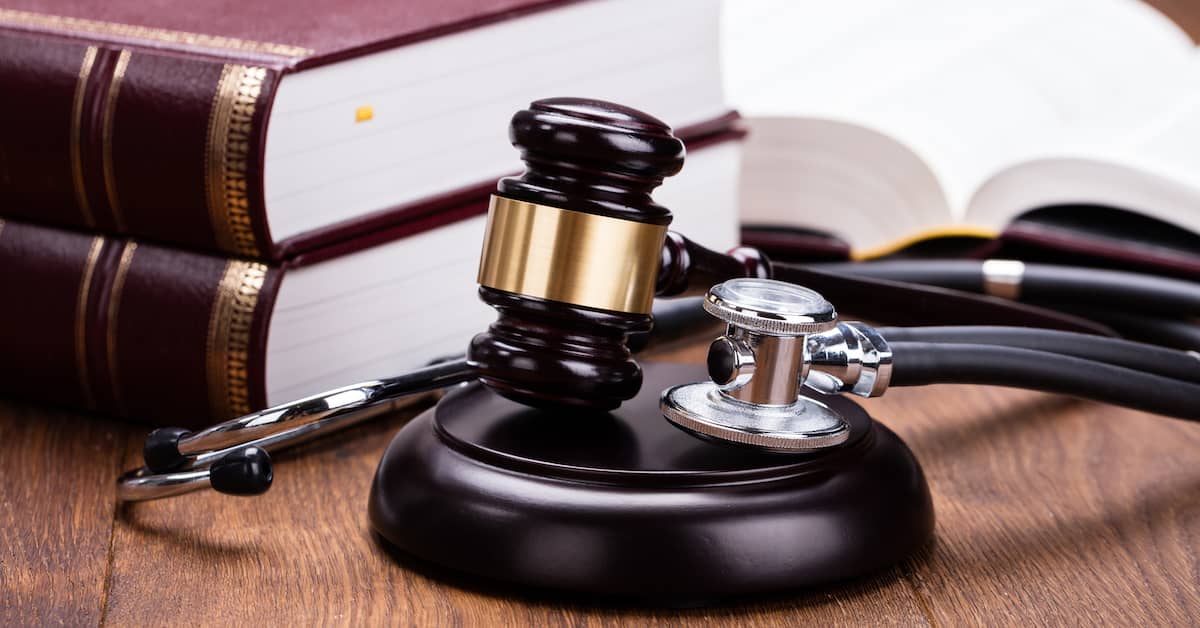Which Element of Malpractice Is Hardest To Prove?
When navigating a medical malpractice lawsuit, it can be pivotal to understand which element of malpractice is hardest to prove. Malpractice cases are never simple or easy. They involve life and death situations, pain and heartache, and, on top of all that, a growing pile of medical bills. Identifying and proving the most challenging element can help ensure that the unfortunate victims of medical negligence find justice.
Medical malpractice claims require a comprehensive understanding of both medical practice and legal standards. If you or a loved one have suffered due to the negligence of a medical professional, you will need assistance in fighting for your rights. An experienced medical malpractice lawyer will know what elements require more attention and how to build a strong case for compensation.
You never thought you’d need to know which element of malpractice is hardest to prove—we understand that. At Colling Gilbert Wright, our dedicated attorneys are honored to assist you during these dark times. We are committed to representing you with empathy, integrity, and care. Call us today at (407) 712-7300 to schedule a FREE case evaluation.
What Is Medical Malpractice?
Medical malpractice occurs when a healthcare professional deviates from the standard of care in their field and causes harm to a patient. This deviation could be due to negligence, errors, or intentional misconduct. It’s not limited to just doctors but can involve nurses, therapists, dentists, or any healthcare provider.
As the Florida Statutes § 766.102 affirms, healthcare providers must exercise the “level of care, skill, and treatment…recognized as acceptable and appropriate by reasonably prudent similar healthcare providers.” If they fail to uphold that level of care and act negligently, resulting in harm to the patient, there may be a case for medical malpractice.
Some common types of medical malpractice include:
- Misdiagnosis
- Delayed diagnosis
- Failure to diagnose
- Surgical errors
- Wrong-site surgeries
- Unnecessary surgeries
- Leaving objects behind inside the patient
- Anesthesia errors
- Medication mistakes
- Birth injuries
- Failure to obtain informed consent
Proving medical malpractice in Florida involves demonstrating that the healthcare provider’s negligence directly caused the patient’s injury. This complex legal process requires the corroboration of expert testimony and extensive medical evidence.
Due to the intricate nature of a medical malpractice lawsuit, it is important to seek the legal guidance of a dedicated Orlando medical malpractice attorney who can advocate for justice and fair compensation.
What Are the Elements of a Medical Malpractice Lawsuit?
A medical malpractice lawsuit hinges on four critical elements that must be established for a successful claim.
Duty of Care
The plaintiff must first prove that there was a doctor-patient relationship, establishing the healthcare provider’s duty to deliver care that aligns with the medical community’s recognized standards. This relationship creates a legal obligation for the provider to act in the patient’s best interest. With the duty of care established, the medical provider is bound by law to treat the patient with the same level of skill, knowledge, and care expected of a reasonably competent practitioner in the same field.
Breach of Duty
Next, it must be demonstrated that the healthcare provider failed to adhere to these standards. A breach of duty occurs when a healthcare provider deviates from the accepted standard of care in the medical community. This breach might be an act of negligence, carelessness, or omission.
For instance, a doctor might fail to diagnose a condition that should have been identified or administer incorrect treatment. Essentially, it’s when a medical professional fails to perform their medical duties competently, leading to harm or risk to a patient.
Causation
Causation in medical malpractice involves establishing a direct causal link between the healthcare provider’s breach of duty and the patient’s harm. This element requires proving that the patient’s injury, worsening condition, or death was a direct result of the provider’s negligence.
It’s not enough to show that the provider acted negligently; it must also be demonstrated that this specific negligence caused the patient’s injury. For example, if a patient suffers complications from surgery due to a surgeon’s error, causation links the surgeon’s mistake directly to these complications. Proving causation often necessitates expert testimony to connect that the provider’s actions or inactions directly led to the patient’s harm.
Damages
Damages refer to the quantifiable losses a patient suffers due to a healthcare provider’s negligence. This encompasses both economic and non-economic losses. Economic damages include tangible losses such as medical expenses, lost wages, and costs of future care. Non-economic damages cover intangible losses like pain and suffering, emotional distress, and loss of quality of life.
With all this in mind, let’s consider which element of malpractice is hardest to prove. The answer: Causation.
Why Is It Difficult to Prove Causation?
While each element presents challenges, causation is often the most difficult to prove in a medical malpractice lawsuit. Why? Because it involves demonstrating a direct link between the healthcare provider’s action (or inaction) and the patient’s injury. This requires an understanding of the complex nature of healthcare, the human body, and the law.
Multiple Contributing Factors
Medical conditions can be influenced by various factors, including pre-existing health issues, lifestyle choices, and genetic predispositions. Isolating the healthcare provider’s action as the sole cause of harm can be problematic.
Complex Medical Science
Understanding and explaining medical procedures and outcomes often require highly specialized knowledge. It can be challenging to clearly communicate how a specific action or omission directly caused harm.
Expert Testimony
Establishing causation usually relies on expert testimony. Experts must correlate the provider’s actions with the harm suffered, which can be contentious, with experts on both sides presenting differing opinions.
Time Gap Issues
Often, there’s a significant time gap between the alleged negligence and the appearance of symptoms or worsening of the condition, complicating the establishment of a direct link.
Due to these factors, causation is not only a medical question but also a legal challenge. Proving causation involves medical knowledge, legal acumen, and the ability to explain the connection clearly and concisely. Skilled and practiced legal representation is essential for an effective medical malpractice lawsuit.
What Is the Most Important Type of Evidence in a Medical Malpractice Case?
Given the complexities in proving causation, expert testimony becomes invaluable. These experts interpret complex medical information, clarify whether the standard of care was breached, and establish a clear link between the defendant’s actions and the patient’s harm.
Their insights are vital in helping the jury or judge understand medical nuances and in making a compelling argument for the plaintiff’s case. This evidence often becomes the linchpin of a successful medical malpractice lawsuit.
In Florida, this testimony must be provided by healthcare professionals who specialize in the same field as the defendant, per § 766.102(5). The expert must have a valid license and have devoted some professional time in the 3–5 years before their testimony.
Without such authoritative testimony, proving negligence and causation in the context of healthcare can be exceedingly difficult. A practiced Orlando medical malpractice attorney has worked with medical professionals and will be able to find appropriate experts to support your claim.
Read More: Why Is It Hard to Prove Medical Malpractice?
Contact the Medical Malpractice Attorneys at Colling Gilbert Wright
Proving causation is often the most challenging hurdle in a medical malpractice lawsuit. However, with the support of skilled lawyers and expert witnesses, patients and their families can seek the justice they deserve.
Read More: What To Look For in a Medical Malpractice Law Firm
If you or a loved one has been impacted by what you believe is medical malpractice, reaching out to a distinguished medical malpractice lawyer can provide the guidance and support you need. With their depth of understanding of legal and medical standards and endless compassion, the attorneys at Colling Gilbert Wright can effectively guide you through the process of pursuing compensation for your terrible losses.
Contact us today to schedule a FREE consultation. We proudly serve our neighbors in Orlando and throughout Florida.

 (407) 712-7300
(407) 712-7300
































